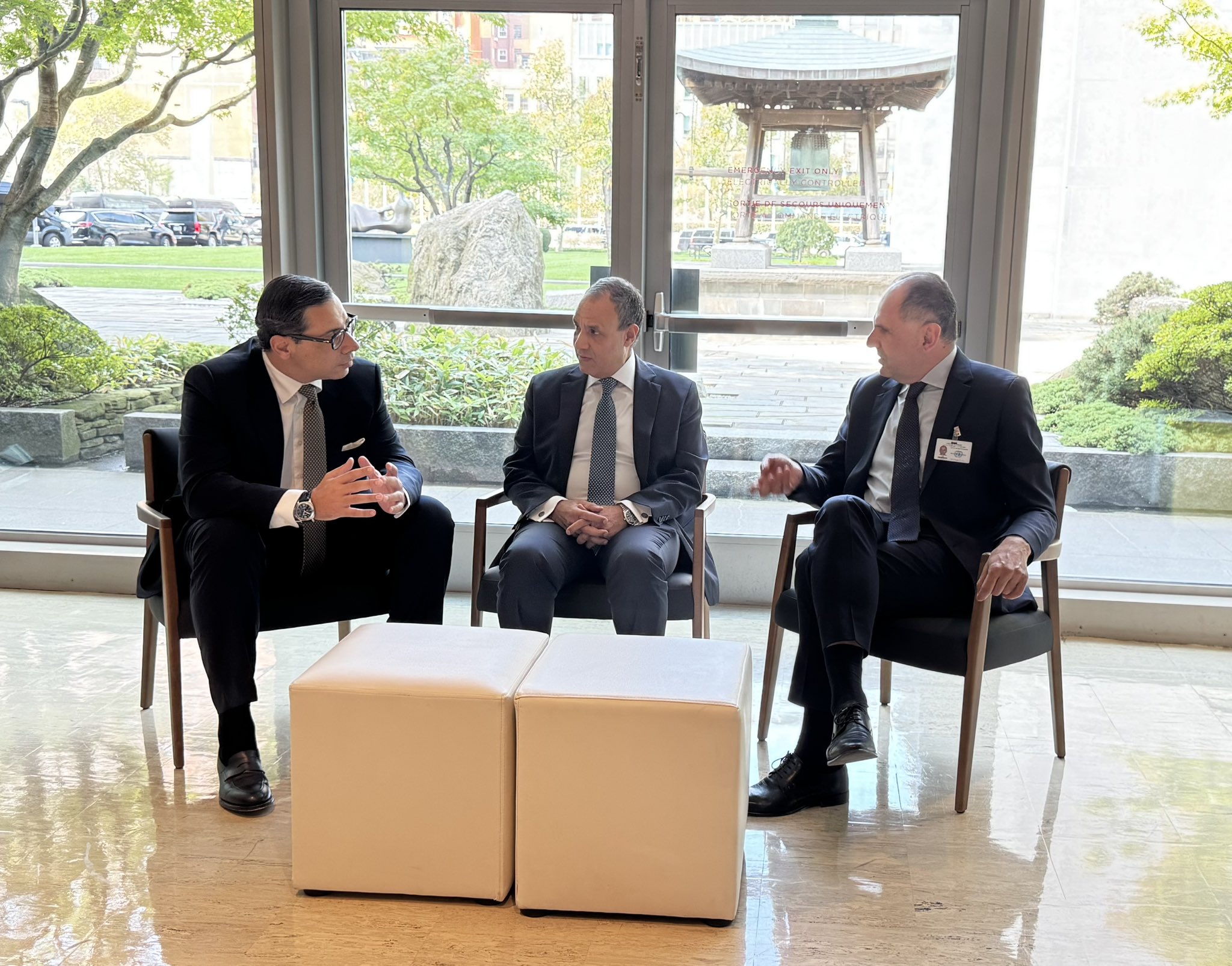Foreign Minister Constantinos Kombos held a tripartite meeting with Egyptian Foreign Minister Badr Abdelatty and Greek Foreign Minister Giorgos Gerapetritis on the sidelines of the United Nations general assembly in New York.
According to the foreign ministry, the trio “reviewed the trilateral cooperation” between the three countries “in the fields of security, energy, and shipping”, and also “discussed regional developments”.
That meeting came after President Nikos Christodoulides had met the prime ministers of both countries, Mostafa Madbouly of Egypt and Kyriakos Mitsotakis of Greece, with both meetings centred on the matter of energy.
According to government spokesman Konstantinos Letymbiotis, “particular reference” was made in the meeting of Christodoulides and Madbouly was made to the Kronos and Aphrodite natural gas fields.
Those fields are located in Block 6 and Block 12 of Cyprus’ maritime exclusive economic zone (EEZ) respectively, with plans afoot for natural gas from both fields to be transported to Egypt for liquefaction before being exported.
That meeting came after members of the Egyptian government had travelled to Nicosia earlier this month and announced that natural gas from Cyprus’ EEZ will be exported to Europe via Egypt in 2027, with the Egyptian government in February having been designated as the “host government” for Block 6 of Cyprus’ EEZ.
Egyptian Petroleum Minister Karim Badawi had earlier this month commented on the prospect of further cooperation between Cyprus and Egypt on the matter of energy, and said that while last week’s meetings had focused mainly on the Kronos gas field, “it is not surprising that we are also working on cooperation regarding the development of the Aphrodite gas field through the facilities in Egypt”.
Earlier on Tuesday, a joint statement released by the Cypriot and Greek governments after the meeting of Christodoulides and Mitsotakis declared that both countries are “fully committed” to the Great Sea Interconnector project, which will link the two countries’ energy grids, as well as that of Israel.
The pair met on the sidelines of the United Nations general assembly, with the joint statement declaring that the project is “of strategic importance”, and that both European Commission President Ursula von der Leyen and European Council President Antonio Costa “are fully aware of and support” the project.
Both the governments of Cyprus and Greece have been at pains in recent weeks to stress their unity over the matter of the interconnector, with Finance Minister Makis Keravnos having said last week that the Cypriot government has “no intention” to “create a confrontation with the Greek government” over the matter.
Prior to that, the two countries had been at odds over the matter of annual €25 million payments which Greece’s independent transmission system operator (Admie) expects Cyprus to make annually, with the Cypriot government withholding the funds.
The annual €25m per year payments are to be made before the interconnector is operational, in effect helping finance the project and ensuring that Admie, the project’s 51 per cent shareholder and implementing body, will have a stable income while investing in the project before it turns a profit.
The Republic of Cyprus has cited a lack of tangible progress on the project and differences in opinion regarding how the money should be sourced in its withholding of the funding, with Keravnos saying last month of the former matter that his stance would change “if the project were being implemented right now and were at a good stage”.
Greek Foreign Minister Giorgos Gerapetritis had disputed this version of events, saying that surveys on the seabed in advance of the laying of electricity cables “did not stop”, but that in fact, “the research was completed according to its planning”.
Over the latter issue, the Republic of Cyprus had initially planned to utilise funds made available to it through the European Union’s emissions trading system (ETS) to make the payments, so as to prevent the burden of the payments from falling on the taxpayer.
Admie had warned that this arrangement may violate the EU’s rules on state aid, and as such asked the Cyprus energy regulatory authority (Cera) to begin charging consumers instead.






Click here to change your cookie preferences